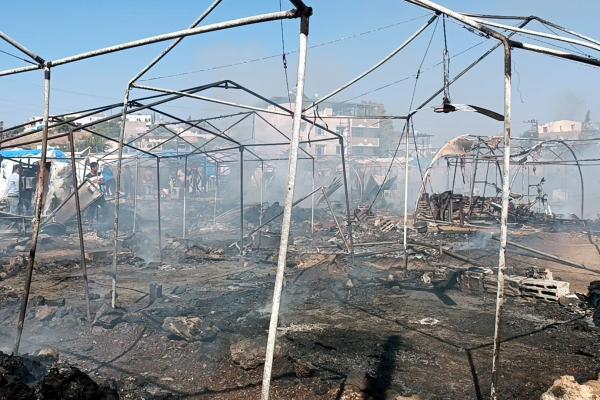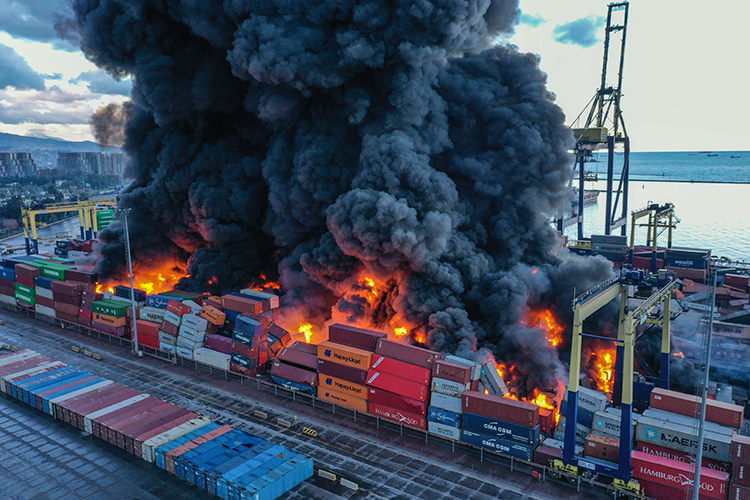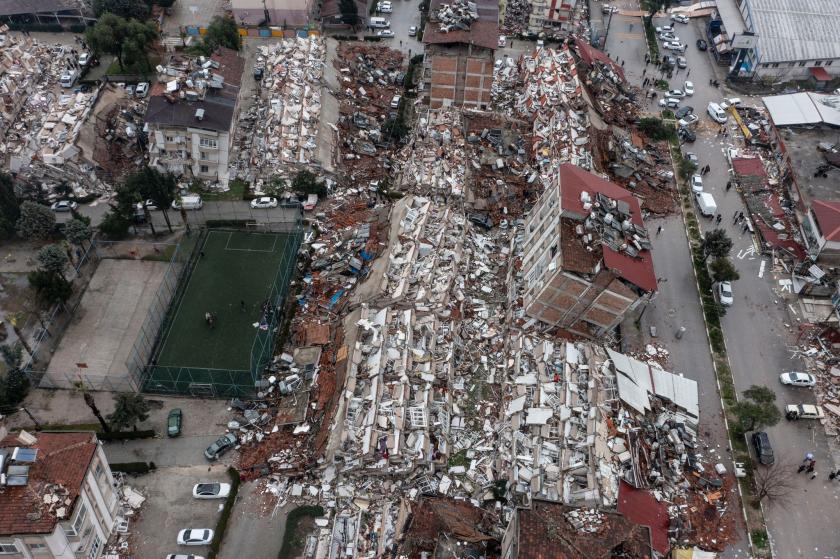A fire broke out at a relief camp for quake victims in Hatay -the city in southern Turkey most severely affected by February's major tremors- leaving tents in ashes.https://t.co/4uN7d7c2Eg pic.twitter.com/zDRvouaHNx
— MedyaNews (@1MedyaNews) July 7, 2023
A fire broke out at an earthquake relief camp in Turkey’s southern province of Hatay on Wednesday. The blaze consumed tents along with earthquake victims’ belongings as it quickly spread in high winds.
No casualties were reported but 50 out of the 87 tents in the temporary shelter were completely destroyed.
 Hatay was the city most severely affected by the major earthquakes that struck provinces across southeastern Turkey and northern Syria in February.
Hatay was the city most severely affected by the major earthquakes that struck provinces across southeastern Turkey and northern Syria in February.
Relief efforts and search and rescue teams arrived late to the area that holds a significant Alevi population. Five months on, earthquake victims in Hatay still struggle to access basic amenities such as water, electricity, and healthcare services.
Turkey’s Human Rights Association (İHD) recently emphasised various ongoing rights violations in Hatay following the disaster and called on authorities to declare the city a special disaster zone.
Health and safety measures have been neglected during quake debris removal operations. According to the İHD, the release of harmful organisms and asbestos dust has reached alarming levels.
Hatay’s residents staged a series of protests after rubble removal operations routinely dumped debris in residential and agricultural areas. The demonstrations were met with police violence and arrests.
Long road to recovery
Official data reveals that 55,589 buildings in Hatay collapsed or suffered severe damage during the earthquakes. Hatay Airport, controversially built on the dried-up bed of Lake Amik, was damaged and all flights closed. A military base in the region also collapsed.
A public hospital in Hatay was completely destroyed, while an emergency department and intensive care unit collapsed in another. The pier collapsed at the city’s port, triggering a massive fire that lasted for days.
 Over 30 transformer stations in the city were damaged, and the natural gas supply was disrupted due to damage to the gas transmission line. Several municipal service buildings were also destroyed.
Over 30 transformer stations in the city were damaged, and the natural gas supply was disrupted due to damage to the gas transmission line. Several municipal service buildings were also destroyed.
These factors, combined with the delayed arrival of rescue teams, contributed to the death toll in the city reaching 21,910, according to official figures. The overall quake death toll in Turkey was over 50,000, with Hatay’s population grieving over a third of total losses.
 In Turkey’s other quake-hit regions life has also yet to return to normal, with numerous buildings still suffering extensive damage. Recently, a video of the collapse of a damaged building in Malatya (Meletî), simply after a person threw stones at it, went viral on social media, highlighting the ongoing challenges faced by affected communities.
In Turkey’s other quake-hit regions life has also yet to return to normal, with numerous buildings still suffering extensive damage. Recently, a video of the collapse of a damaged building in Malatya (Meletî), simply after a person threw stones at it, went viral on social media, highlighting the ongoing challenges faced by affected communities.










